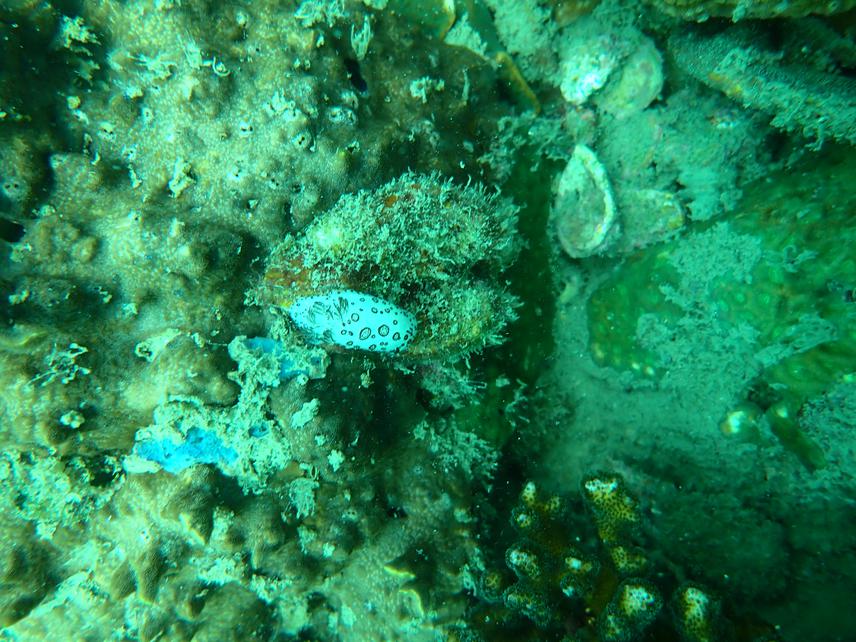Thinh Dinh Do
Nudibranchs are a diverse group of molluscs, with 3,000 species described worldwide. Despite their diversity, the investigation and conservation of them is still limited. Many nudibranchs may disappear before they are discovered due to marine pollution and habitat degradation. To date, there are only a few reports on nudibranchs in Vietnam, and these studies were focused on Nha Trang Bay and surrounding areas. Meanwhile, little is known about the nudibranch diversity in the Gulf of Tonkin. Therefore, the diversity survey and conservation of nudibranchs in this region are critical for understanding marine biodiversity in the country.

Jorunna funebris. ©Thinh Dinh Do.
Plastic pollution is a serious problem affecting the marine environment. The impacts of plastic debris include the ingestion, suffocation, and entanglement of marine organisms, including nudibranchs. Vietnam is considered a hotspot of marine plastic pollution. Despite that problem, there are few activities performed for removal of plastic waste from marine habitats in the country, especially coral reefs. Therefore, the reduction of plastic waste is necessary for the long-term survival of coral reef organisms. However, in Vietnam, understanding and awareness among coastal communities of the plastic waste problem and coral reef habitat protection are still limited. Thus, the current project will be performed for the conservation of nudibranchs and plastic waste reduction in the Gulf of Tonkin, Vietnam. The plastic waste at survey sites will be removed with the support of local communities. Also, their understanding of nudibranch conservation will be increased through our presentation. The project activities will significantly contribute to the long-term conservation of marine organisms in the region.
Header: Phyllidia ocellata. ©Thinh Dinh Do.